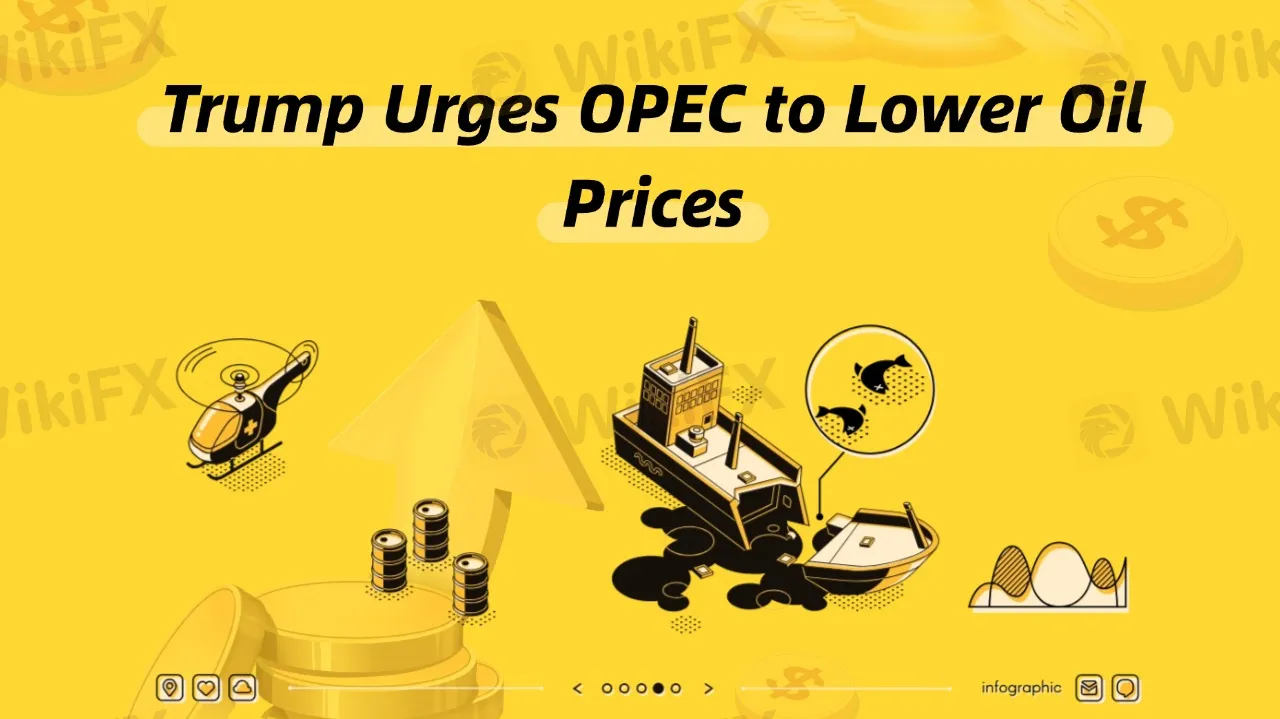Trump Urges OPEC to Lower Oil Prices
Abstract:As of January 17, the EIA's oil status report showed that crude oil inventories have decreased for the ninth consecutive week, while Trump has urged OPEC to reduce oil costs.

Against the backdrop of fluctuating global oil prices, Trump recently issued a strong call to the Organization of Petroleum Exporting Countries (OPEC) to “lower oil costs.” He stated plans to intervene in the global oil market on a large scale and specifically urged OPEC member countries, including Saudi Arabia, to take measures to reduce oil prices. Trump believes that lowering oil prices will put pressure on Russia, which could lead to the end of the Ukraine conflict. At the same time, he argued that falling oil prices would help alleviate global inflation pressures and create conditions for lowering interest rates. Trump explicitly stated, “As oil prices fall, I will demand an immediate reduction in interest rates, and global interest rates should also decrease.”
Trump's remarks not only exert pressure on OPEC countries but also directly challenge the Federal Reserve's interest rate decisions. He publicly stated that he understands interest rates better than Federal Reserve Chairman Jerome Powell and predicted he would have a conversation with Powell at an appropriate time.
His comments had an immediate impact on the international oil market, with US WTI crude prices briefly dropping by 1.4% and Brent crude declining by 1.2%.
How will OPEC respond?
In response to Trump's call, OPEC's reaction may not be straightforward. As a key global oil-producing group, OPEC members have significant influence over oil price setting and production regulation. However, Trump's intervention may put these countries in a position where they need to weigh complex political and economic factors. Whether OPEC countries will respond to Trump's request largely depends on the global oil market's supply and demand situation and each country's economic interests. If OPEC decides to increase production further, it may lower oil prices in the short term, but it could also impact the fiscal revenues of its member countries, particularly those heavily reliant on oil exports.
Furthermore, OPEC is not fully unified, as some members may prefer to maintain higher oil prices, while others may support increasing production to meet global demand. While Trump's call is clear, OPEC's decision-making process will likely continue to be influenced by complex geopolitical and economic factors. Therefore, whether Trump's request can directly alter OPEC's production decisions remains to be seen.
For investors, keeping a close eye on OPEC and the Trump administration's developments will be crucial in understanding the future direction of oil prices.

Read more

UN Warns Asian Scam Operations are Spreading Worldwide
UN report reveals Asian scam operations expanding globally, targeting Africa, Latin America with cyberfraud, generating billions amid crackdowns.

PrimeXBT Expands with Stock CFDs for Major Global Companies
PrimeXBT introduces stock CFDs, allowing trading of major US stocks like Amazon, Tesla, and MicroStrategy with crypto or fiat margin options.

Shocking Move: Yen Breaks Past 140 Barrier!
The yen's breakout above the 140 mark has caught global attention, and the reasons behind it are more than technical.

Another ‘Tan Sri’ Targeted, RM347 Million in Assets Seized in MBI Scam
Malaysia’s police are stepping up their investigation into the MBI investment scam, a multi-billion ringgit fraud that has dragged on for nearly a decade. The Royal Malaysian Police (PDRM) is now planning to arrest another prominent figure with the title ‘Tan Sri’, following recent arrests and major asset seizures.
WikiFX Broker
Latest News
Germany’s April PMI Falls Below 50 as Service Sector Stumbles
PayPal Opens Regional Hub in Dubai, Expands Middle East Reach
FINRA fines SpeedRoute for alleged rule violations
RM15,000 Profit Turned into RM1.1 Million Loss for Engineer!
New to FX Trading? Stop! Read These Warnings First
Prop Trading Firms vs. CFD Brokers: Who’s Winning the Retail Trading Race?
TRADE.com UK Sold to NAGA Group Amid 2024 Revenue Drop
Why Binance Tightens Crypto Transfer Rules for South Africans?
Coinbase Eyes U.S. Federal Bank Charter for Crypto Growth
Why People Fall for Online Trading Scams
Rate Calc
